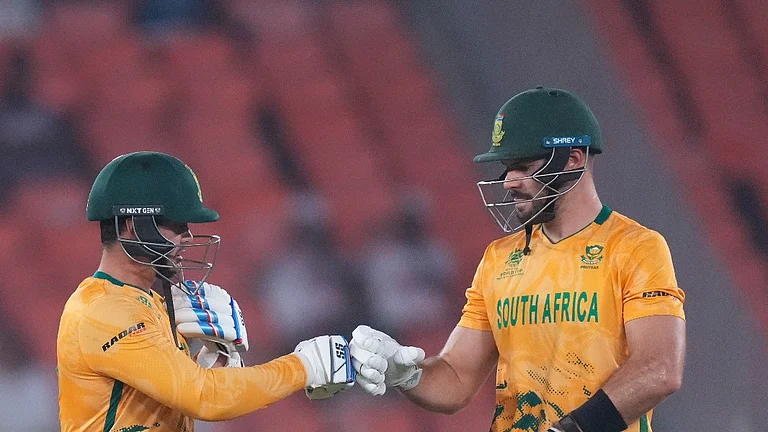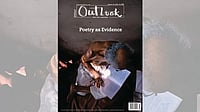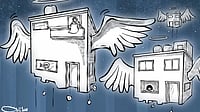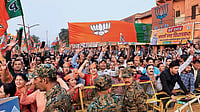Actually, Gaza is full of poverty, and there are people who pick their food from the garbage.
The tragedy is that things keep getting worse, and the biggest tragedy is that there’s nothing to stop that happening. Every pit has a bottom, except Gaza. I dream of living one day in freedom, and I don’t think that’s a big dream, but it’s hard to come true.
My dream is also to end the Palestinian division which is giving us schizophrenia.
I’m tired of thinking but I can’t stop it. But we have to plea and God will provide, and to you folks, goodbye!
AHMAD TAHA, born 1996, Al Daraj
All my life I thought Gaza was the biggest and most beautiful city in the world. But once, I went with my Dad to Jaffa and came back with my head spinning. After that I felt that Gaza was the size of a needle hole and wasn’t beautiful, and it keeps getting smaller and worse. No one can breathe, and on top of it all we’re not allowed to travel.
Every time I walk the streets of Gaza I suffocate. Jaffa’s picture won’t leave my mind. I ask myself, where are we? We’re so far from the rest of the world. That’s why I’m always at the sea, because I feel it’s not from Gaza. I keep writing my name on the sand and the waves come and erase it.
Before the war I wanted to be an electronics engineer, but since the war I hate going to school. I feel I won’t be anything important in my life, and even if I will, so what? It’s all the same in this city. Am I going to be the prettiest flower on a garbage heap?
When the bombing began, all the schools in Gaza went home, except us. The principal wouldn’t let us leave. The kids freaked out and, in a second, they went out into the schoolyard. The weird thing is that I’m in the Zaytouneh school, the one near the ministry of passports which got hit first. With the first hit, a piece of a rocket flew onto the biggest tree in the school and sliced it in two like a sugar cane. As soon as we saw that, no one stayed in school—students, teachers or the principal. We fled for our lives.
I thought the only martyr that I would see in the war is the tree. But as soon as I got home, there were four martyrs in our street, as though waiting for me to say goodbye to them. When I was done with that, three more martyrs from the same family in our street arrived . . . As soon as we buried them and returned, our neighbors’ house, two houses down the street was bombed by the army and the house was wiped off the ground. Everyone died. I felt most sad for the little girls.
I felt the war was targeting me alone, out of all the people in Gaza. All day I’d been seeing martyrs.
In the Shifaa hospital I saw a sight that I will never forget. Hundreds of corpses one on top of the other. Their flesh, their blood, and their bones all melting on each other. You wouldn’t know the woman from the man or even the child. Piles of flesh on the beds, and lots of people screaming and crying, not knowing where their kids are, their men or their women.
That night, I came home from hospital and was awake till morning from fear. I thought that it would only be that night that I couldn’t sleep, but till today I see them in front of me and I can’t sleep!
ASHRAF A SOSSI, born 1994, Al Wehda Street
All the neighborhood kids loved him. He was calmer than a breeze, he would take his pocket money from my father and give it to me.
Everyone loved him. His friends came and he went with them to school.
They went out running like butterflies, flying off the ground . . . like the world was created for them.
The Israeli planes were in the air. The sound of the helicopter was like a monster waiting to pounce on its prey.
A car of wanted men was driving along Yarmouk street, and the butterflies were near the car. The butterflies didn’t know that this car would be the fire that would burn them.
A rocket fell on the car. My brother Tareq flew five meters off the ground. He flew higher than the car then came down walking; nothing was the matter with him. The ambulance came and took the corpses.
People told him to get into the ambulance, but he told them: “Nothing is the matter with me,” and he kept going to school.
One hundred meters later, he put his hand on his heart and fell down a martyr. I was in the street waiting for the school bus and my sister told me to go see what’s going on. I did, but I didn’t see Tareq and I went on to school.
While I was in class, my uncles came and told me you will take three days off school. I didn’t suspect anything; we got in the car . . . My uncle told the driver to turn off the news. Then I started getting suspicious because my uncle loves the news. We got home and there was a big crowd of people around. Before I went down, I saw my father sitting on the chair crying. It was the first time I saw my father cry and he was holding the picture of my brother Tareq. I asked him: “Dad, was my brother martyred?” He said: “God have mercy on his soul.”
The ambulance brought him from the hospital . . . we all ran to him to say goodbye. He was sleeping like an angel, with the book that’s he’d been carrying still in his hands.
My father refused to let us go with him to the cemetery, but I got in the car and went and said goodbye to him and read the Fatiha prayer on his grave . . . I kept going for three months every day to sit at his grave and talk to him.
At night I stare at his picture in the room, with: “The hero martyr—Tareq” written on it.
Since my brother was martyred I got used to sleeping in the bed alone.
We used to sleep one on top of the other, legs on top of heads, sometimes it felt like all our limbs were jumbled together. But today I have a bed by myself! I’ll never forget my brother.
ALAA HAJ JAJ, born 1996, Al Shuja’iyeh/Al Montar
I feel like running, running, running in the streets till my headscarf flies in the sky and I fly after it . . .Sometimes I feel like being totally crazy, but I can’t . . . It’s the first time I say things like this, maybe they’re not the kind of things I say, or maybe they’re the things that I can’t express, or I’m scared to express . . .
Why do my parents treat me like this? I look at the girls my age, how they’re living their lives, and I envy them, I wish I could be like them in their confidence and freedom.
I wish a ship would carry me to a distant island and throw me on its shore, far away from the world from everything, especially the war.
Speaking of the war, all the war was one pile and Mum was the other.
I’ll never understand why my Mum kept describing things to me that I’d already seen!
She and I were standing on the balcony; they bombed our neighbors’ house and one of the neighbors died . . . We saw how the house was destroyed, and how the corpse flew onto the street, and you can imagine what happened to the family after that. Did it end? No, it didn’t.
Mum started telling me about how our neighbors’ house was bombed, and how our neighbor flew from the house, like she was talking to someone who hadn’t been standing with her! And on it went, stories from Mum all through the war, and I was the only listener.
We’d be sitting watching TV, and they would say there was bombing or destruction in some place. The report would be fifeen minutes long, but Mum’s repeated report would be TWO HOURS . . . She’d talk about the report like I hadn’t been with her. I started to doubt myself—had I been sitting with her or not? I swear I was there, I was really there, I was sitting next to her!
Anyway, thankfully Mum isn’t with you otherwise she’d give you a headache with her stories.
AMANEE AL SHORAFA, born 1992, Al Remal
Gaza is a plane carrying people and traveling toward the unknown; landing neither in heaven nor in hell. No one knows when it will land, and people may stay suspended like that for twice my lifetime.
All days here are the same; there’s nothing new. The simplest thing is that dreams and wishes are hard to make true in Gaza, especially if they’re like mine, to be an artist, singing and acting and playing music.
In Gaza the only music is that of death, and dancing on wounds . . . If I go abroad and study directing, how would society look at me? After I graduate, would the country be like now or worse? Everything for me is foggy and unclear, like people’s faces on Friday at the Feras market. And like the day the war began . . . The first hit was at the ministry of passports. My friend and I came out of an exam; it was the first day of the first term exams. We sat in front of the school gate talking and waiting for the rest of our friends so we’d go home together. Suddenly there was a series of explosions . . . I was in shock and felt that I was going to die. We ran away and I was really scared . . . I saw the women running and screaming and beating their faces . . . and I had no idea what was going on. I felt I couldn’t stand on my legs, and the world started spinning . . . I fainted and stopped feeling anything. Then I woke up to my friend’s voice shouting: “Amanee, for God’s sake, wake up!”
When I woke up I started crying, not knowing where to go or what to do. An older girl helped me and took me home. As soon as I arrived, my mother took me in her arms. I was very tired but at that moment I rested. I needed to fall into someone’s arms. The hardest thing to feel is that your moment of death is near.
The war was a black ghost that covered Gaza’s day and night. It imposed its hell on people, on the earth and sky and air that we breathe.
After the war I had a breakdown; a big, wild wave overtook my soul. I was thinking I wouldn’t be able to come out from under it. But it was like a hand was extended to me through the theater; a rubber ring that pulled me out from under the wave.
Today I feel a comfort that I haven’t felt in a long time . . . and I hope I can always stay like this.
(Excerpted from Stories Under Occupation and Other Plays From Palestine, Edited by Samer Al-Saber & Gary M. English, with permission from Seagull Books)





















